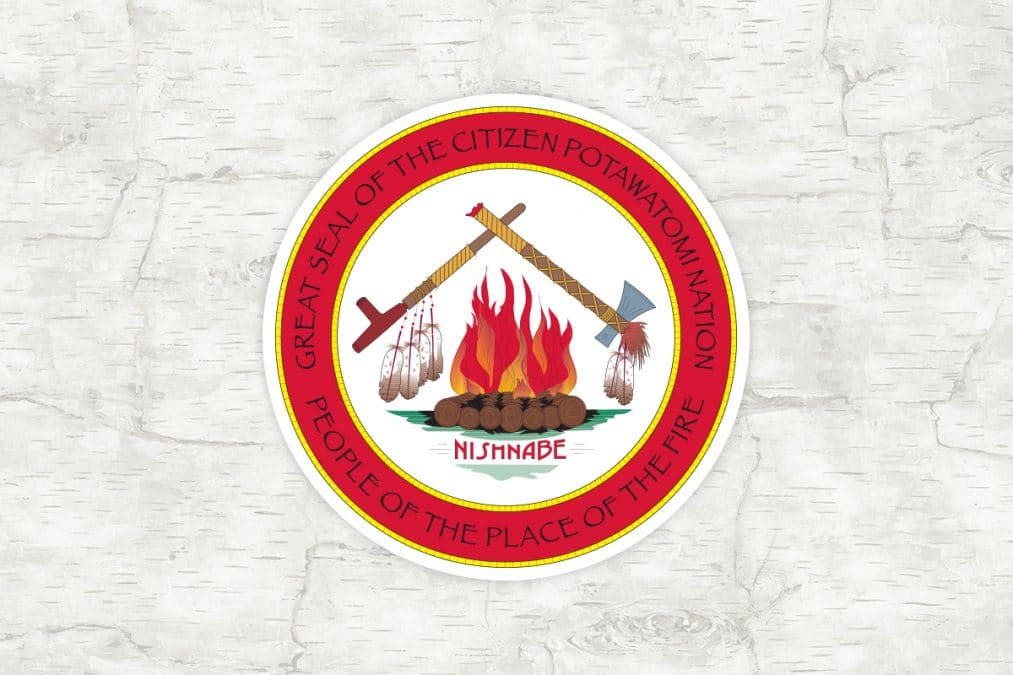The Citizen Potawatomi Nation has set aside funding received from U.S. Congress as part of the Coronavirus Aid Relief and Economic Security Act to support Tribal citizens and Tribal-owned businesses. While the CARES Act was enacted on March 27, 2020, tribal governments did not begin to receive payments until May, which was later than the deadline established by Congress and after states began to receive distributions.

“Once we received the funding and guidance from the U.S. Treasury on how the funds may be used, we immediately began working on a plan to use the funds to respond to COVID-19, protect the stability of the Tribal government and its enterprises, and help our Tribal citizens who have been impacted by the virus,” said Tribal Chairman John “Rocky” Barrett.
The amount set aside for the program will be supplemented when CPN receives its second CARES Act distribution. The U.S. Treasury Department calculated and issued the first distribution based on population data within the Tribe’s Oklahoma jurisdiction obtained from the U.S. Department of Housing and Urban Development. The Treasury has not determined the funding formula for the second distribution. The additional amount CPN will receive is unknown at this time.
CPN’s allocation will assist individual Citizen Potawatomi and CPN member-owned businesses. Individuals and businesses must apply for the assistance. In order to receive funding, individuals and businesses must show a financial impact due to COVID-19 and other qualifying factors imposed by federal law, and the businesses applying must have a controlling stake held by an enrolled CPN member.
The Tribal Legislature adopted a resolution creating the COVID-19 Crisis Compliance Department to facilitate adherence to the complex rules required by the federal government. The Tribal Legislature also established a maximum payment of up to $1,200 per qualifying individual and up to $5,000 per qualifying Tribal member-owned business.
“In order to ensure the Nation meets the legal obligations established for the use of these funds as set by the United States Congress and the U.S. Department of the Treasury, the Tribe is required to keep a diligent accounting of all funds used during this time,” said CPN Tribal Attorney George Wright.
The funds received from the CARES Act may not be distributed as per capita payments. Distributions will be made to qualifying Tribal members if they are able to demonstrate they have been financially impacted by COVID-19. There may be other qualifying factors imposed by federal law. The National Congress of American Indians and the Native American Financial Officers Association have both expressed concern about tribal governments issuing per capita payments from these funds. These organizations have warned that per capita payments may lead to an investigation by the Inspector General for the tribal government and an IRS audit of the recipient tribal members.
In addition, CARES Act funding will be used to help ease the financial burden created by the Nation’s response to COVID-19. In a letter from the Harvard Project on American Indian Economic Development to Treasury Secretary Steve Mnuchin, economists noted that states and regions risk losing more than $127 billion in annual spending on goods and services, more than 1.1 million jobs, and more than $49.5 billion in wages and benefits for workers.
Several CPN enterprises suspended operations in order to help prevent the spread of COVID-19, already leading to a more than $15 million decrease in gross revenue for the Tribe. The full financial impact of COVID-19 will not be known for some time, as several enterprises have not reopened at full capacity and likely will not do so before the end of the year.
“CPN relies on Tribally-owned businesses to generate the revenue necessary to provide services and programs in our community and for our Tribal members,” Chairman Barrett said. “Many of our government programs have seen an increased demand for services because of COVID-19. The Nation has been preparing for and responding to the virus since February.”
The CPN Cultural Heritage Center, FireLake Bowling Center, FireLake Arena and both gaming establishments temporarily suspended operations in mid-March. Other Tribal programs began to limit in-person interaction; the child development center at the administration building closed, and three restaurants began offering to-go service only under new restrictions. CPN’s remaining eight restaurants were forced to close. Beginning in April, Oklahoma began its phased re-opening plan. In contrast, CPN took a slower approach in easing restrictions on the advice of CPN Health Services leadership.
“Our public health experts were ahead of the game in preparing for this in late February, before Oklahoma even had its first confirmed case, and I am thankful for their leadership during the COVID-19 response,” Chairman Barrett said. “We listened to them when they advised us to temporarily suspend operations in March, and we now trust their guidance on how to protect our staff and customers as we safely reopen.”
As of June 1, 2020, all Tribal enterprises have re-opened in some capacity. Both the Grand Casino Hotel & Resort and FireLake Casino have limited hours and guest capacities, among many other new regulations.
“As CPN businesses cautiously reopen, we will continue to be vigilant and do our part in slowing the spread of COVID-19,” said CPNHS Medical Director Dr. Adam Vascellaro. “The safety of CPN staff, customers and our community remains our utmost concern, and we urge everyone in the facilities to follow all necessary precautions to keep our community healthy.”
Once the application is available, Tribal members will be notified on the Tribal website and social media channels as well as by mail. Tribal members should contact Tribal Rolls at 405-878-5835 or 800-880-9880 to update contact information. Tribal members can register to receive an email when the application is available at potawatomi.org/covid-assistance/.
For more information on how the Nation has responded to COVID-19, visit cpn.news/COVID19.
